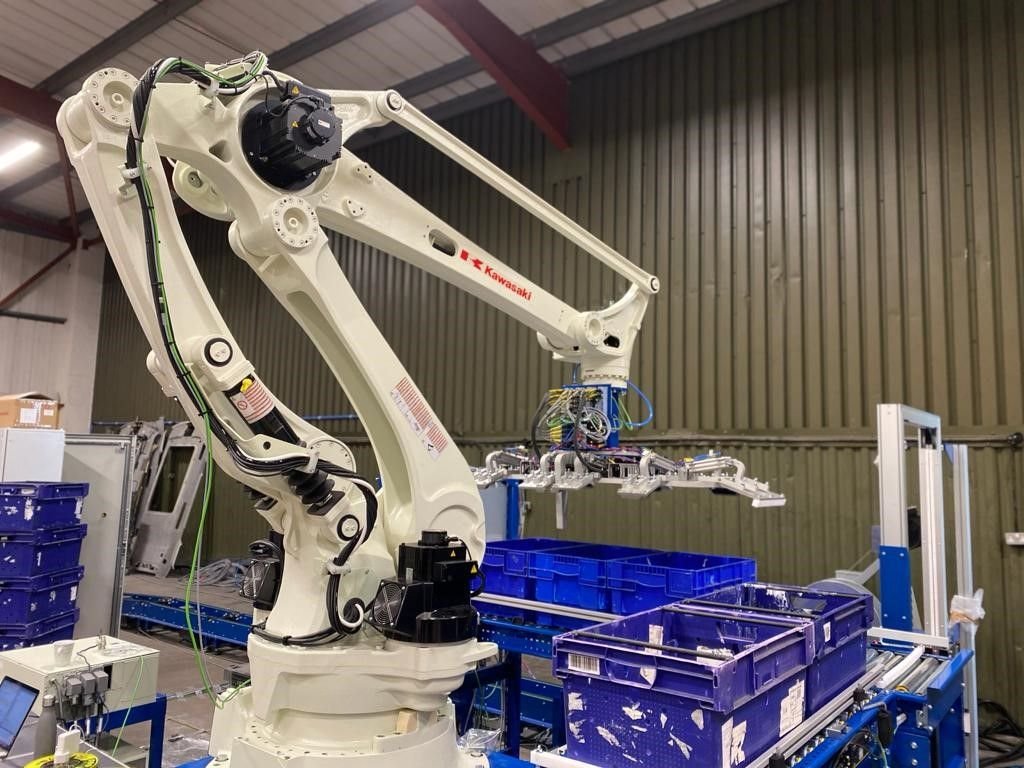Robotic Automation
Robotic automation, the utilisation of robots to execute tasks, is rapidly reshaping industries across the globe. This field encompasses the design, construction, programming, and operation of robots, as well as the study of these intricate processes. From streamlining manufacturing lines to automating complex back-office functions, robotic automation offers a powerful toolkit for boosting efficiency, improving safety, and driving innovation. LAC Conveyors is at the forefront of this transformative technology, providing robotic solutions tailored to meet the evolving needs of modern businesses.
Delving Deeper into the Types of Robotic Automation:
Robotic automation isn't a one-size-fits-all solution. It encompasses a range of technologies, each designed for specific applications:
Robotic Process Automation (RPA): The Digital Workforce: RPA focuses on automating repetitive, rule-based digital tasks using software "robots." These bots mimic human interaction with computer systems, automating processes like data entry, form filling, report generation, and even complex decision-making based on pre-defined rules. RPA is particularly valuable in sectors like financial services, banking, insurance, and healthcare, where it can streamline processes like claims processing, account management, and regulatory reporting. Imagine a software robot effortlessly extracting data from multiple sources, compiling it into a comprehensive report, and distributing it to stakeholders – that's the power of RPA.
Robotic Welding
Precision and Efficiency in Manufacturing: Robotic welding leverages the precision and consistency of robots to automate welding processes in manufacturing. This leads to higher quality welds, reduced defects, increased production speeds, and improved worker safety by minimising exposure to hazardous fumes and conditions. From automotive assembly to shipbuilding, robotic welding is crucial for industries demanding high-volume, high-quality welds. LAC Conveyors understands the critical role of welding in many manufacturing processes and offers integrated robotic welding solutions to optimise production lines.
Collaborative Robots (Cobots)
The Rise of Human-Robot Collaboration: Cobots represent a paradigm shift in industrial robotics. Designed to work safely alongside humans in shared workspaces, cobots are equipped with advanced sensors and safety features that allow them to interact with human workers without the need for traditional safety barriers. This collaborative capability opens up new possibilities for automation in tasks that require both human dexterity and robotic precision. Cobots are finding applications in assembly, packaging, material handling, and even healthcare, where they assist with tasks like surgery and patient care. LAC Conveyors recognises the growing importance of cobots and offers solutions that seamlessly integrate these collaborative robots into existing workflows.
Robotic Automation in Action: Real-World Examples:
The impact of robotic automation can be seen across a wide range of industries:
Website Scraping: Robots can automate the process of extracting data from websites, enabling businesses to gather competitive intelligence, track pricing trends, and analyse market data.
Call Center Operations: RPA can automate tasks like answering frequently asked questions, routing calls, and updating customer information, freeing up human agents to handle more complex inquiries.
Customer Order Processing: From order entry to shipment tracking, robotic automation can streamline the entire order fulfillment process, reducing errors and improving delivery times.
Employee Onboarding: Automating tasks like paperwork processing, benefits enrollment, and training scheduling can significantly reduce the administrative burden of onboarding new employees.
Credit Card Applications: RPA can automate the processing of credit card applications, from data validation to credit scoring, speeding up the approval process and improving accuracy.
Scheduling Systems: Robots can automate the scheduling of appointments, meetings, and resources, optimising resource utilisation and minimising scheduling conflicts.
Claims Administration: In insurance and healthcare, RPA can automate the processing of claims, from data entry to verification and payment, reducing processing time and improving efficiency.
LAC Conveyors: Your Partner in Robotic Automation:
LAC Conveyors is committed to helping businesses harness the power of robotic automation. We offer a comprehensive range of robotic solutions, from initial consultation and system design to integration, implementation, and ongoing support. Our expertise in robotics, combined with our deep understanding of manufacturing and logistics processes, enables us to develop customised solutions that address the unique needs of each client. Partner with LAC Conveyors to unlock the full potential of robotic automation and drive your business forward.




